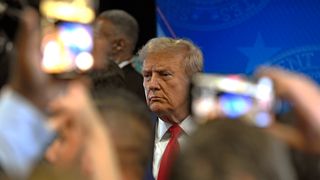A conversation with Professor James Fallows, US Studies Centre and correspondent for The Atlantic, and Professor Morris Fiorina, Hoover Institution Stanford University.
Only two years after the sky high expectations surrounding his historic election as US President, Barack Obama’s Democrats suffered stunning losses in this month’s midterm congressional elections. Despite getting out of Iraq, making sure the GFC did not become a second depression, and passing major health care and financial reform, the US remains mired in deep economic trouble and Obama apparently can do nothing to stop the Tea Party-catalyzed rout.
Two of the US’s most experienced and distinguished political analysts discussed what happened and why, what the midterm rebuke means for the Obama presidency and American politics, and what the future holds for Australia-US relations.
Co-presented with Sydney Ideas at the University of Sydney.







